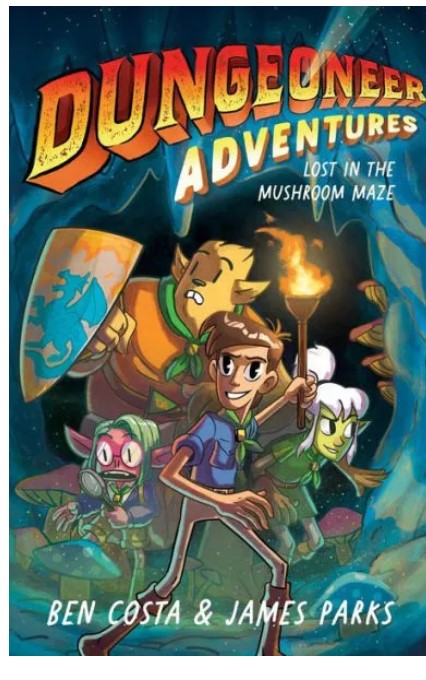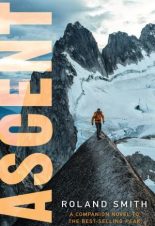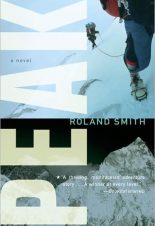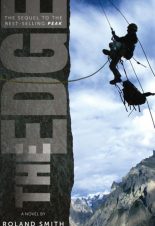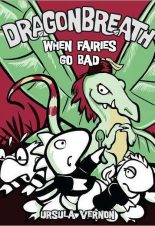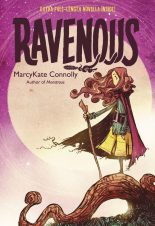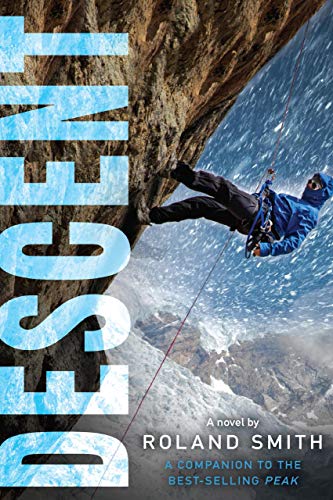
Buy This Book
“Going out and doing good things has nothing to do with convenience, likes, or dislikes. It was about doing the right thing regardless of what it might cost you,” Peak Marcello. —Descent
Descent
Peak Marcello Adventure #4
by Roland Smith
AR Test
12+
Score
4.8
240
Peak, Zopa, and Joshua Wood’s adventure down the mountain, Hkakabo Razi, continues as the group is pursued by the Chinese government. Picking up immediately where the last book left off, Peak and the gang are running out of time to escape both the mountain and China. Fortunately, Zopa has more tricks up his sleeve as they search for sanctuary in the fabled monastery, Pemako. But with old enemies on their heels, the group will have to move quickly to avoid capture.
As the final installment to Peak’s adventures, Descent is an action-packed ending that wraps up all the loose ends. Although the first half of Descent is slow, the rest of the story is fast-paced with plenty of new elements, including the hidden monastery, Pemako. Peak learns much more about Buddhist beliefs and life in Pemako, thanks in part to Zopa’s increased role.
Despite being on the run from the Chinese government, the main theme that Peak and the other characters drive home is the importance of going out into the world and doing good, even when it may be difficult. An old enemy from the first installment named Captain Shek reappears. While climbing, Peak decides to save Captain Shek because Peak feels that letting the captain fall to his death would be wrong. This decision arises despite Captain Shek’s merciless pursuit of Peak, Zopa, and Joshua Wood, and despite Captain Shek’s aims to capture and imprison Peak and his family. At one point, Captain Shek does capture Joshua and beats him. Regardless, Peak shows Captain Shek humanity and mercy by saving his life, even if Captain Shek has no interest in showing Peak or the others any compassion.
Descent is as much about survival as it is about climbing, though climbing is once again a big part of the book. Although Peak’s climbing adventures do end with this book, Peak takes away important lessons about finding inner peace and being a compassionate person. Throughout the series, Peak has shown time and time again that he is a strong-willed teenager, but he really shines when he consciously decides to be the best person he can be. His talent as a climber is impressive, but even that comes second to his ability to choose humanity over revenge. Descent is a strong conclusion to Peak’s story. Although readers will be sad to see the series end, the lessons learned will outlast even the books themselves.
Sexual Content
- None
Violence
- In Tibet, the Chinese military arrests Josh Wood and beat him. Peak discovers this because Josh’s two eyes are “swollen shut.”
- Captain Shek’s men catch up to the family that helped Josh, Peak, and Zopa escape. According to the monks at the monastery, Captain Shek and his men questioned them, and the family wasn’t “beaten too badly.”
- In the monastery/crater called Pemako, many of the monks practice martial arts. Peak describes, “Practicing is a little mild for what I witnessed. They were sparring, full contact, with fists and feet, and tossing each other onto the unpadded floor. Several of the monks were bleeding. Half a dozen others were sitting next to a wall like broken, discarded dolls.”
- Peak learns a bit about Pemako, like the crime rate. Peak explains, “Crime is rare here, but not unknown. Anyone you ask will tell you about it. There has been one murder, two rapes, and seventeen thefts. I was shocked to hear this until the farmer who told me this added, ‘In the past one hundred years.’”
- Lightning strikes Josh while he’s climbing a wall. He falls and “he hit the ground a few feet from the rope. Both of his legs were twisted in sickeningly, unnatural angles, shattered.”
Drugs and Alcohol
- When Josh Wood is arrested and interrogated, Peak is pretty sure they drug Josh as well. Josh is extremely groggy and isn’t always sure of his surroundings.
- Due to the severe head injury that Ethan sustained in the previous book, Ethan now takes a lot of medications to help him get better. Ethan says that he’s “a zombie most of the time.”
- One of Shek’s soldiers stops to “smoke a cigarette and answer his two-way.”
Language
- Light language is used infrequently. Words include: moron and stupid.
- Ethan calls Peak over the satellite phones and tells Peak to “get his ass out of Tibet.”
- Peak mentions that Zopa “didn’t give a damn what he looked like when he was climbing.”
Supernatural
- Peak asks how Zopa was able to find him when he was lost in the jungle. Zopa is evasive, and he says that he reached Peak via “other means.” Peak guesses, “Star Trek transporter? Broom? Quantum shift? Time machine?”
Spiritual Content
- Peak discusses how documentaries make mountain climbing look so simple. Peak says, “Suddenly, the intrepid, brave climbers appear on the mountain out of nowhere as if God dropped them from the sky.”
- Zopa gives climbing gear to the hunters who help feed Zopa, Peak, and the others. Zopa says, “It is all about karma. The giving, not the taking.”
- Zopa mentions that there are women who are monks. Peak is surprised by this, and Zopa replies, “Enlightenment has nothing to do with gender.”
- In Tibet, Zopa explains that he, Peak, and Josh should head towards Pemako. Zopa describes, “It is the hidden lotus land, the earthly representation of the Tibetan goddess Dorje Pagmo. The mountains and rivers of Pemako are thought to be her body, with her center, or womb, being somewhere in the Tsangpo River Gorge.”
- Zopa spends some time meditating in the lotus posture, or “padmāsana.”
- Much like in the other installments, Zopa gives every passerby that aids Peak, Josh, and Zopa a “Buddhist blessing” for safe travels.
- Peak explains to Zopa that he was under the impression that Buddhist monks didn’t eat meat. Zopa replies, “The big Buddhist food debate. Which has been going on since Siddhartha Gautama became the Buddha twenty-five hundred years ago. Buddhists are definitely not allowed to kill animals and are encouraged to be vegetarians, but this does not prevent them from eating animal flesh if that flesh was not expressly killed for their consumption.”
- One of the monks mentions that “work is prayer.”
by Alli Kestler
“Going out and doing good things has nothing to do with convenience, likes, or dislikes. It was about doing the right thing regardless of what it might cost you,” Peak Marcello. —Descent
Latest Reviews

Grace Hopper: Queen of Computer Code

Girls Who Code: Learn to Code and Change the World

Alone

Friends Fur-Ever

Harry Houdini: A Magical Life

The Greedy Gremlin

Hoop Genius: How a Desperate Teacher and a Rowdy Gym Class Invented Basketball

Our Violent Ends

Healer of the Water Monster
